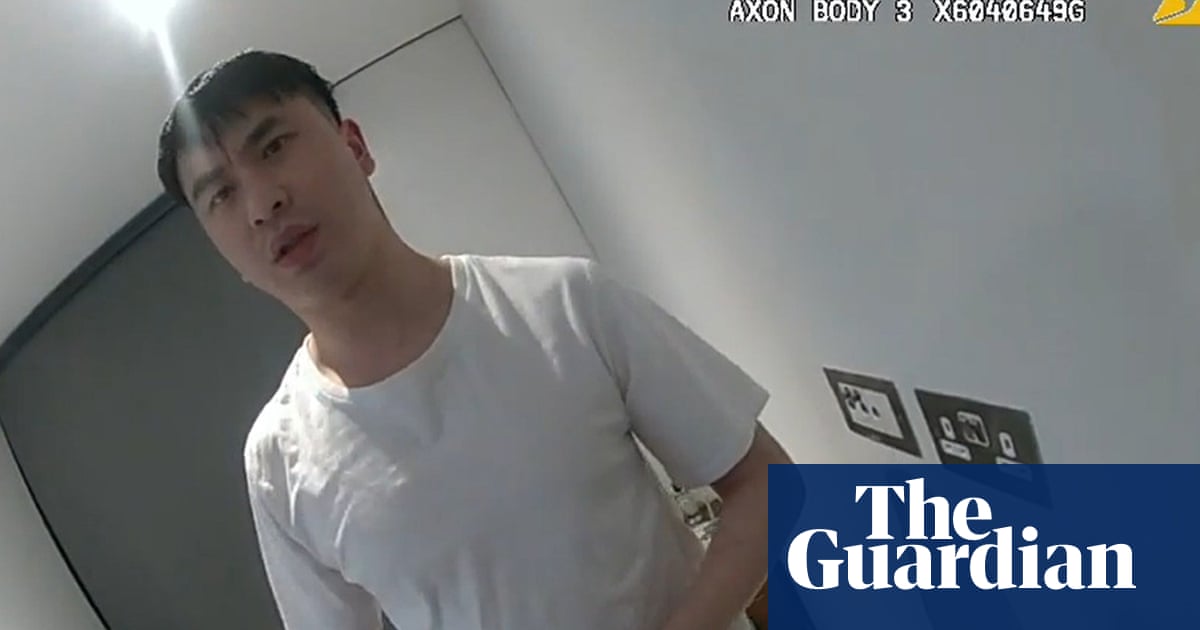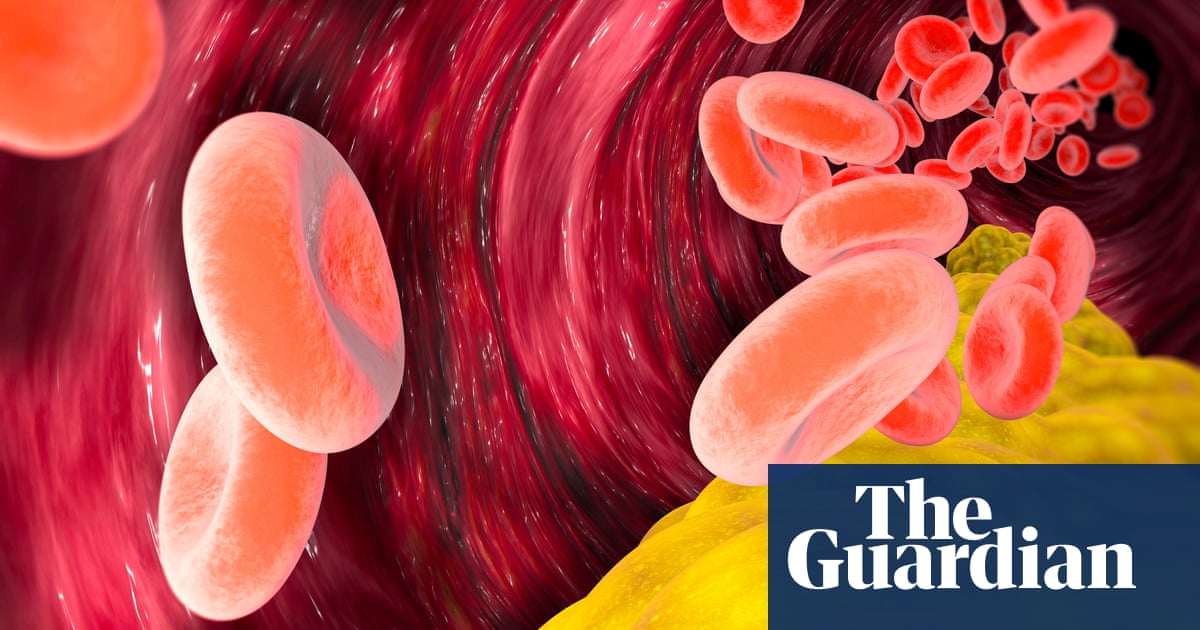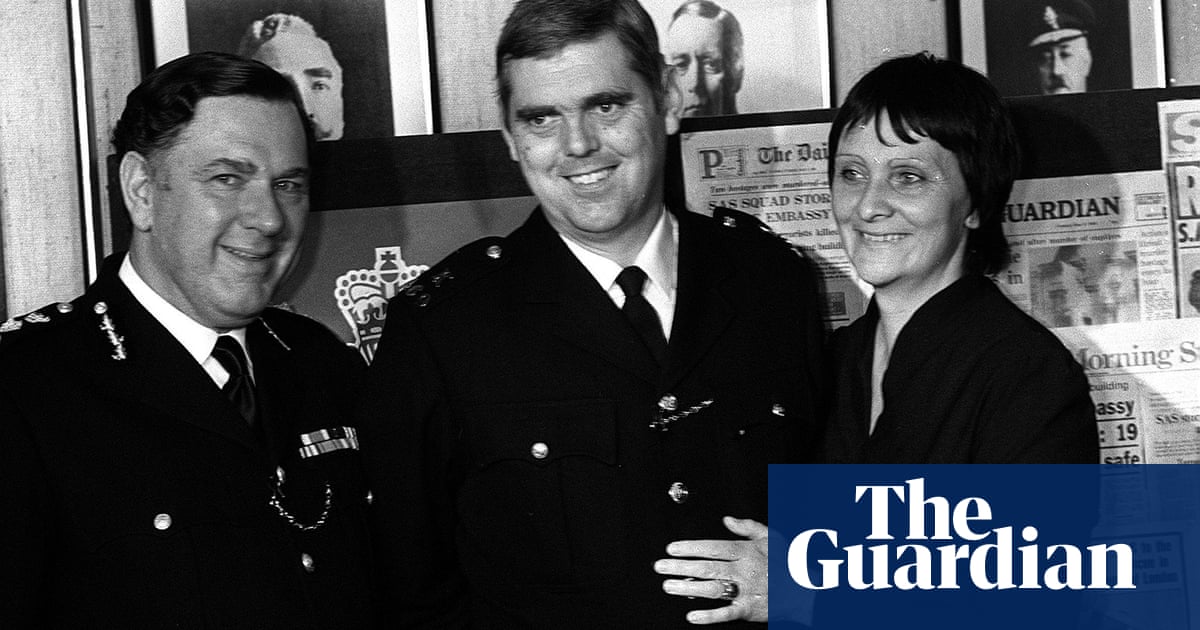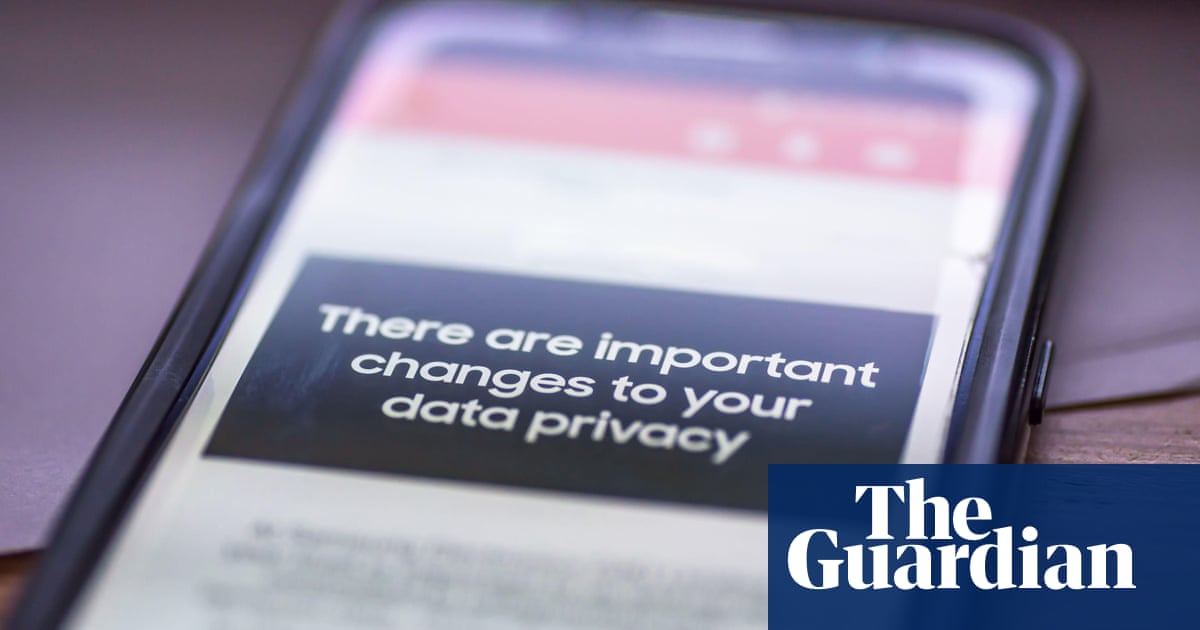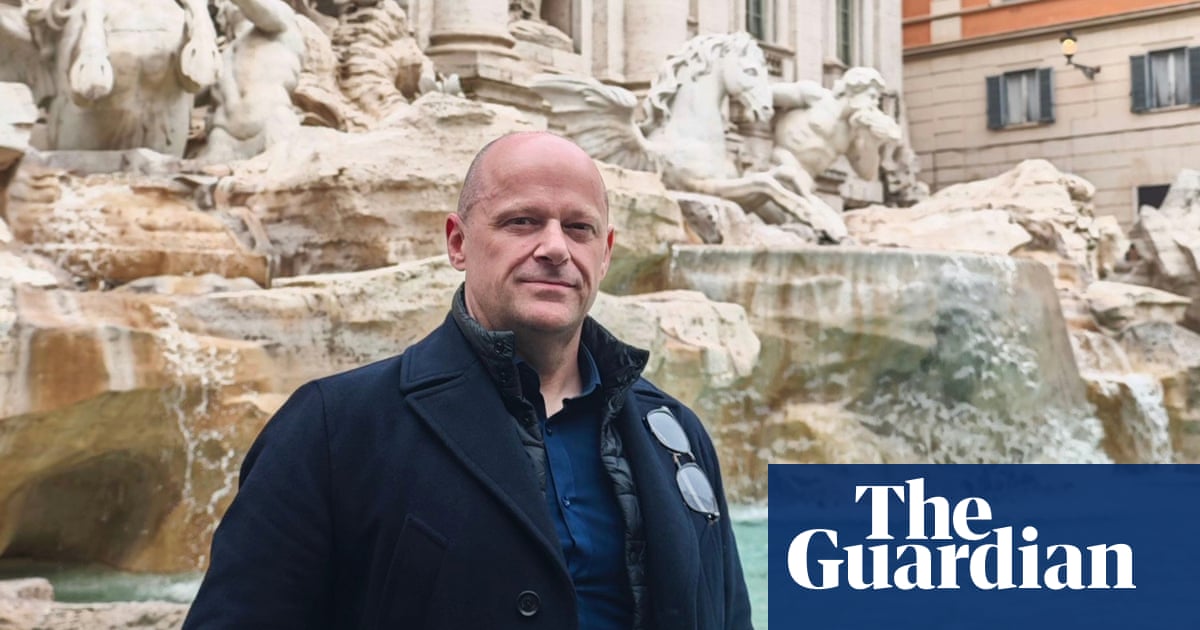It has been nearly 14 years since a chance encounter with a stranger in a post office changed Bernadette Russell’s life forever. The date was Thursday 18 August 2011. For weeks, on the news, as a series of riots broke out across cities in England, Russell had been inundated with images of young people in hoodies looting, pillaging and setting buildings on fire.
Now, standing in front of her at her local post office counter in Deptford, south London, was a young man in a hoodie.
for a year.“He must have been in his late teens or early 20s,” she says, “and I remember thinking: ‘Oh gosh, I bet people might be judging you, because you look like the images we’ve been seeing on TV. I wonder if you’ve been having a hard time.’” Then she overheard him say he didn’t have enough money to pay for his stamp. “So I just said: ‘I can pay it for you.’”
It was a tiny, split-second decision that would have a profound and long-lasting impact on her life. Before he left, he thanked her “quite a few times, more than he needed to. That felt quite significant and a little bit sad really.”
She never saw that young man again. Yet her interaction with him, and the smiles of the other people who witnessed it, lit a flame inside her that would burn and burn. Russell had gone into that post office feeling “overwhelmed about the sheer volume of bad news and the enormity of problems in the world, that I had absolutely no power to do anything about”. But on the bus, on her way home, she felt different; empowered. “It made me think about how maybe some people are more likely to receive kindness than others and how one way to respond to unkindness is with kindness.”
For days, she had been concerned that people who lived in neighbourhoods like hers were being demonised. “There was a particular atmosphere in London in the aftermath of all the unrest; a kind of sadness, of fear. And so our interaction seemed impactful, not just for us, but for the other people who saw it as well.”
The moment the idea of carrying out one kind act a day for a year entered her mind, she decided to do it. “It was quite spontaneous. I thought: ‘I’ll see what difference this makes,’” she says. “I had no idea what I was letting myself in for. I’m not sure if I’d known what was coming, I would have started it so impulsively.”
At the time, she was a jobbing actor who was working part-time as a picture researcher to make ends meet. “I had a longstanding general reluctance – a refusal, even – to see the world as this dark, shadowy place full of people doing awful things. But I wasn’t in a position of power.”
The daily acts of kindness, which she documented on social media, gave her a new purpose in life and a new position of influence. Now, she is a playwright, a storyteller, an artist and an author whose latest book, Conversations on Kindness, is about to be published. “Across all my creative projects, at the beating heart, is kindness,” she says.
The kind acts she carried out during the year ranged from quirky (giving a stranger at a bus stop a packet of Love Hearts, placing a bookmark with a kind message inside a book in a charity shop) to commonplace (showing tourists the way to a train platform or helping an old man who was struggling with his bags). Not all of them went down well – three days into the project, she tried to give a stranger in a tube station a cheering card she had spent a long time making: “He didn’t want it and even though I promised him it wasn’t weird, he kept saying no… So I just threw it at him and ran down the escalator.”
Realising she had not, in fact, been kind, she left £1 on the tube for someone to find that day instead. Looking back, she thinks she learned a lot from the experience. “What ‘kind’ means to you, might not be what it means to someone else.”
Her favourite act of kindness was the time she gave a friend’s grandad a ukulele lesson. “He hadn’t played it since he was a young man, so I reminded him how to play. Then we just hung out and played the ukulele together.”
It was a surprise to discover that the more kindness she tried to show others, the more she noticed other people being kind to each other. “I was choosing to see the world differently and it shifted my perspective, as though I was seeing everything through a kindness filter.” In a way she hadn’t previously, she would notice people helping carry buggies up the stairs or putting suitcases on luggage racks. “I noticed kindness was happening all around me.”
There was another side-effect, too: “I started becoming aware of how often I received kindness – which was often.”
At the end of the year, she decided to carry on doing daily kind acts. Nearly 13 years later, she has never stopped – although she no longer puts all of her kind deeds on social media, to allow her recipients more privacy. Her practice of noticing kindness has also continued, and has given her more faith in the world, in human beings and in herself. “It’s made me stronger, more resilient and less prone to melancholy.” For example, watching the news doesn’t get her down as much as it used to – even on bad days, she reminds herself “that every day, every moment, there are countless kind things going on and being done”.
Kindness, she firmly believes, has the potential to change the world. “I think if kindness is at the heart of every action and thought – for example, the practices of compassion in politics or world farming – I think it has truly radical, world-changing and life-changing power.”

Sometimes, being kind means being in an uncomfortable place. “Obviously, there are some people in positions of power in the world at the moment who it is hard to think of as placing kindness at the centre of what they are doing. But I think if you want progress, that might include having deep, profound conversations with people who, for example, support Trump. And listening to them – the people who believe he’s helping – and putting compassion at the centre of that.”
This kind of kindness, she has come to realise, is different from “little acts” of generosity, like giving strangers a jar of sweets. “That kind of kindness is lovely and charming. But kindness has a radical, sinewy, strong muscular side as well, which is about speaking truth to power and challenging things – it’s about finding a way of doing that gently, and in a way that is connected to empathy and peace.”
In Conversations on Kindness, she reflects on the kind acts she carried out over the year of her experiment and the responses people had, as well as interviewing different types of experts about how they understand kindness and what they have learned about it. These range from neuroscientists and psychologists who research kindness for a living to a vicar and Billy Bragg, who tells her what inspired him to write his song The Milkman of Human Kindness. “Empathy,” he says, “is what underpins socialism”.
At first, having conversations – and making connections – with strangers during her year of kindness was a big challenge for Russell, which may be one of the reasons she struggled with the man who rejected her card. “I’m an introvert, so the idea of interacting with strangers was a little bit horrible and scary,” she says. “But I quickly found that, if I said: ‘I’m doing a good deed every day,’ they understood what I meant. And I ended up having all these amazing conversations with strangers.”
One of the most moving encounters, which she recounts in her book, happened when she began chatting to a man who was experiencing homelessness while waiting for a friend in central London. After her friend texted to say she would be late, Russell decided to invite the man to have a coffee with her at a chain coffee shop nearby. “He said he hadn’t been ‘inside’ before.” But they were sitting outside. “What he meant was: he hadn’t felt included.”
It was a novel experience for her, too – although she had often spoken to rough sleepers before, she had never invited any of them out for a coffee. “We had a really deep conversation, because he was generous enough to share his story with me.” She talked to him for 40 minutes, and was moved to discover the man slept standing up in a wardrobe in an abandoned building, to keep himself safe from the dangerous drug addicts who lived there. “I still think about that. I can’t imagine what that’s like.”
His shame at being homeless hit her hard. “He was ashamed of having a bit of a dirty jacket and not having any money, and of ending up so low.” Yet despite his own struggles, he expressed compassion for others. “He said he understood why the people who might endanger him were like that, because of their addiction problems.”
The experience made her believe even more strongly that “small acts of kindness can be really impactful” – and not just to others. She had suffered abuse as a child, which she touches on in the book and, after completing her year of kindness, felt able to write a forgiving letter to her estranged stepfather, letting go of her anger and pain. “My experiences have been really healing. I don’t think that means that everyone who has suffered abuse and trauma has to forgive everything, but what I did, what I tried, it did work for me and it is working.”
When she discovered her stepfather was dead, she took the letter and burned it on Southsea beach. “I imagined breathing it out, the hurt, the rage. I felt deep relief and peace in that moment. I said goodbye to him. I went home,” she writes in a beautiful passage in her book.
In a way, Russell thinks her quest to see the world as a kind place began when the abuse began. “As a child, I just would not accept that the world was full of monsters. I made a choice not to believe that and, to this day, I keep making that choice. I keep re-committing to kindness. I keep believing there is more good than bad, more hope than fear.”
Suffering, she has come to understand, can give you a deep understanding of what it is to be human and a strong sense of solidarity with others who have suffered. “I feel hugely compassionate towards everyone,” she says. “I understand what it’s like to live in fear, to be endangered and experience violence.”

She sometimes imagines how the world would change if every single person “consciously did a small act of kindness every day, consciously noticed when kindness happened to them or they witnessed it. I hope that everyone who reads my book or listens to one of my talks will know that they can make a difference through kindness. And I hope that by modelling small daily acts, I’m showing that anyone – whatever their circumstances – can do something kind, even if it’s just saying good morning or smiling at someone.”
Yet, at the same time, she thinks it’s important to practice self-kindness – and that includes forgiving yourself on the occasions when you fail to be kind. “I think people have so much to contend with, so many personal worries, and then there’s the huge background of climate change and war. Sometimes when we see people suffering, it’s frightening and it creates distance, because feeling empathy for them is so terrifying.”
She also knows, firsthand, how hard it can be to be kind to people who have been unkind. “I’ve been kind to people who, in the course of a conversation, have told me they have done pretty dreadful things.” For example, she met one man, who was sleeping rough, who told her he had been violent towards women, which made her feel very conflicted as a victim of domestic violence herself. “He felt able to say that to me because I had been kind to him. I stayed in that conversation – and that was difficult.”
Russell did it because she believes that people who are treated with love, kindness, forgiveness and compassion can change. “You just have to have faith that an act of kindness, however small, will be powerful. You have to have the courage to do it. And you have to have hope.”
Conversations in Kindness by Bernadette Russell is published by Elliott & Thompson at £16.99. Buy a copy for £15.29 at guardianbookshop.com

 2 days ago
8
2 days ago
8


